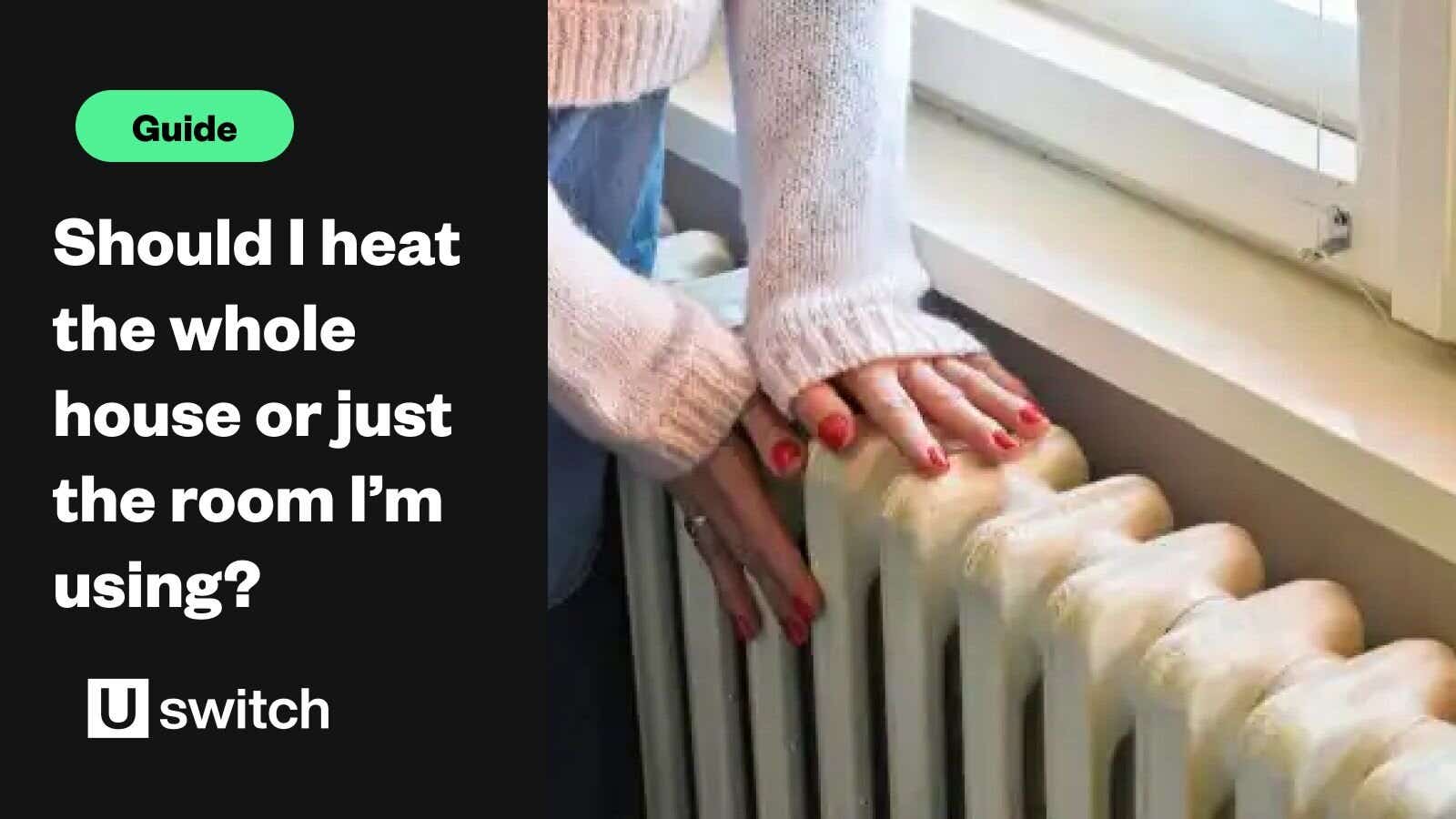For example, if you mainly use your living room during the day, should you have the central heating off and just heat that room?
As it turns out, the main method you use to heat your home has the biggest influence on whether it's worth heating a room individually or not, but the size of the room in question – compared to the size of your whole house – is also key.
How should I heat my home if I have a boiler?
If you have a modern gas or oil central heating system and a well-insulated home, you should use it to keep your whole home at a comfortable temperature rather than just one room.
A modern boiler is the most efficient way of heating a home and you can make it even more efficient by using it with radiator controls to adjust the temperature in each room.
How should I heat my home if I have radiators with temperature controls?
If you have an up-to-date heating system, you probably also have temperature controls on your radiators — also known as thermostatic radiator valves or TRVs.
They allow you to vary the temperature of different rooms in the house, which means you can use the main heating to keep a reasonable background temperature around the home, while at the same time using the radiator controls to increase the temperature in one particular room when you need to.
How should I heat my home if I have radiators without temperature controls?
If you don't have the option of using radiator controls you may want to use a gas fire or electric heater in a room where you spend a lot of time. You also can use your main heating if you want to keep a reasonable background temperature around the home.
If you do this, make sure your thermostat isn't in the room with the additional heating, otherwise it will disrupt control of the main heating system. If you have a wireless thermostat, move it out of the room you're heating locally.
How should I heat my home if I have storage heaters?
If the main method you use to heat your home is a storage heater, the considerations are different.
A storage heater is designed to mainly use off-peak electricity. But you’ll probably need to top this up with some peak-rate electricity usage to provide extra warmth when and where it’s needed.
In this case, it may be worth heating a small room separately, but if you do so, remember to close the door of the room to keep the heat in.
Can I use a gas fire instead of central heating?
This depends on the size of the room you want to heat. It’s only worth using a gas fire instead of central heating if the room is less than a third of the size of your home.
While a modern central heating boiler might have an efficiency of 90%, a gas fire might only be around 50% to 60% efficient. An open-flame gas fire could be as little as 30% efficient or lower. This is because a lot of heat is lost up the chimney or flue.
A gas fire also needs a supply of fresh air to provide oxygen for the gas-burning process. That fresh air is drawn into the room through a ventilator or air-brick. Unfortunately, this ventilation works all the time and can lead to loss of warmth, even when you're not using the fire.
For some homes, flueless or catalyst gas fires are more practical to install. But from an efficiency perspective they still need ventilation - more than with a traditional gas fire - whether the fire is on or not.
Balanced flue gas fires could be a good option. They don't need ventilation. And although they’re expensive to buy, they’re cheaper to run than other options as they can be as energy-efficient as condensing central heating boilers.
Should I use a portable heater?
Portable heaters and small heating devices don't tend to be particularly energy-efficient. They don't use the cheapest fuels and it's also very easy to end up overheating the room, so avoid using them if you can.
Movable bottled gas heaters (known as liquid petroleum gas or LPG) are the same, as a lot of ventilation is needed to avoid fumes and condensation.
How should I heat a small home?
In smaller homes and flats, it's rarely worthwhile heating an individual room and is generally better to heat the whole house.
How should I heat a large home?
In larger homes, a small room may be worth heating individually if it's less than a quarter of the size of the whole house. There's less benefit if your house is well-insulated.
How should I heat an open-plan home?
If, like many modern houses, you have an open-plan layout, then it won't be energy-efficient to try to heat just one room. If you have high ceilings the same applies.
Is it cheaper to heat one room with an electric heater?
It might be cheaper to heat one room with an electric heater. But it depends on the size of the room and how long you need to heat it for.
Although gas costs about four times less than electricity per kWh, it will usually be heating more than one room through the central heating system. So it could work out more expensive overall.
Is it more energy-efficient to have the heating on constantly or only when you need it?
Those who argue for having their heating on all the time believe it takes additional energy to bring their home up to temperature when the heating has been switched off. Why bother spending a lot of time heating your home only to let it cool down again?
It's clear that if you leave your heating on 24/7, you will typically end up using more fuel. This is because some heat loss will always occur due to the difference between the temperature outside your house and the temperature you are trying to maintain on the inside.
So, if you have your heating on all the time, your heating system will be using energy on an ongoing basis to maintain the inside temperature.
However, the greater the heat loss from your home, the more energy you will need to maintain the inside temperature, which means that the cost of leaving your heating on all the time will be especially expensive.
That's why ensuring your home is well-insulated is vital to minimise this heat loss. Taking steps to improve insulation is a good way to save on your energy bills - this can include insulated cavity walls, a well-insulated loft, double-glazing and draught-proofed doors.
Typically the most energy-efficient approach to heating your home is to programme your heating system so that it comes on when you need it most.
With many of the more modern room thermostats you also have the ability to set different temperatures for different rooms at different times, and you may even be able to set up a separate programme for weekends.
How to test whether it's cheaper to have heating on all day or only when you need it
If you're not convinced — and if you have a well-insulated home — you can test whether putting on the heating 24/7 is cheaper than programming your system to come on at certain times of the day.
To get a good idea of the energy usage for each option, you can leave your heating on constantly for a week, followed by a week of programming your heating to come on twice a day.
You will need to take a meter reading at the beginning and end of each week, and from the results you will be able to see - assuming the weather and temperature outdoors have been similar across the two weeks - which approach is the most energy-efficient for you.
Heating a whole house vs. one room: other considerations
There are other factors when it comes to deciding whether or not to heat a room individually:
- Health - if there are elderly or disabled people or young children in the home, heating one room isn’t advised.
- Safety - pen-fronted gas and solid fuel fires can be hazardous to children and other vulnerable people, as there's a risk of falling into or against them. It’s also important to have gas fires serviced regularly.
- Insulation - how well insulated your home is can affect heat retention and energy efficiency. Good insulation makes it more practical to heat only the space you’re using.
- Room usage - consider how often you use specific rooms. If, for example, you spend most of the day in your home office or lounge, heating just that room might be more efficient.
As you can see, there’s no one-size-fits-all solution to heating your home efficiently. It boils down to several factors, including the size of your house, your heating system and your family’s needs.




